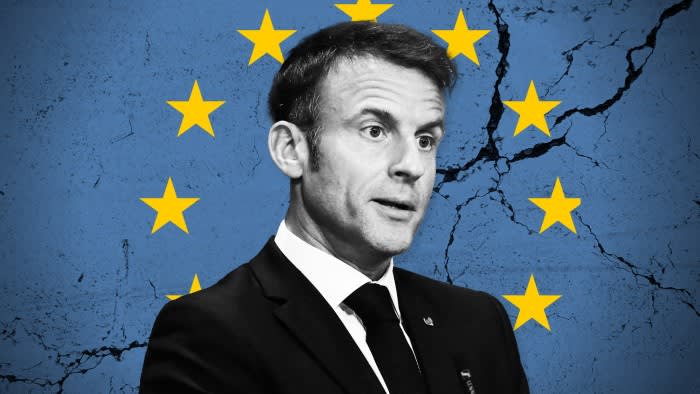Hungary’s Prime Minister Viktor Orbán, left, met with Russian President Vladimir Putin at the Kremlin on July 5. France and Germany condemned the visit © Sputnik/Valeriy Sharifulin/Reuters
In France, experts downplay the importance of Mélenchon’s party, which is outnumbered by greens and socialists in the victorious leftwing alliance. But a leftist government could place limits on the amount of support Macron can offer Ukraine.
“He might have to hold back sending Mirage 2000 fighter jets,” said Michel Duclos, a veteran diplomat. “If the commission wants new funding sources, will a leftwing government say yes? It could cause some tensions.”
Any suggestion that the outcome of France’s election could damage the Franco-German relationship provokes deep concern in Berlin.
The tandem was instrumental in spearheading some of the great reforms in EU history — the creation of the euro, the Lisbon treaty extending EU powers far beyond economics and the €800bn of joint borrowing for the post-pandemic recovery.
The two countries have been at odds in recent years, partly because Scholz has had his hands full trying to keep together his unwieldy three-party coalition of Social Democrats, Greens and liberals.
But co-operation has picked up again recently on a number of fronts, with both countries agreeing on the need for the EU to move into defence and make progress towards capital markets union — a push to consolidate the bloc’s fragmented banking sector.
They also responded to the advance of far-right parties in June’s European parliament elections by uniting behind a senior leadership team for EU institutions — and condemned Hungarian Prime Minister Viktor Orbán for travelling to Moscow to meet Vladimir Putin last week.
Recommended
Still, the power dynamics within the European Council, the bloc’s political body attended by heads of state, are likely to shift.
“One is only as strong as their political support,” said Laurence Boone, former EU minister under Macron. “When France and Germany suggest amendments or new legislation, others might be tempted to push back and say: let’s talk first.”
There was a risk of Europe embracing a more minimalist agenda, said former Italian prime minister Letta. His own plan for capital markets union, which he presented in April with Paris’s support, would be jeopardised, as well as talks over a eurobond to fund defence projects.
“If the French engine grinds to a halt, everything stops,” Letta said. “Nothing happens through inertia in Europe.”
Video: Why the far right is surging in Europe | FT Film
Source link : https://www.ft.com/content/5f613658-ca1c-453a-9bdf-688315ab4122
Author :
Publish date : 2024-07-11 04:00:47
Copyright for syndicated content belongs to the linked Source.
